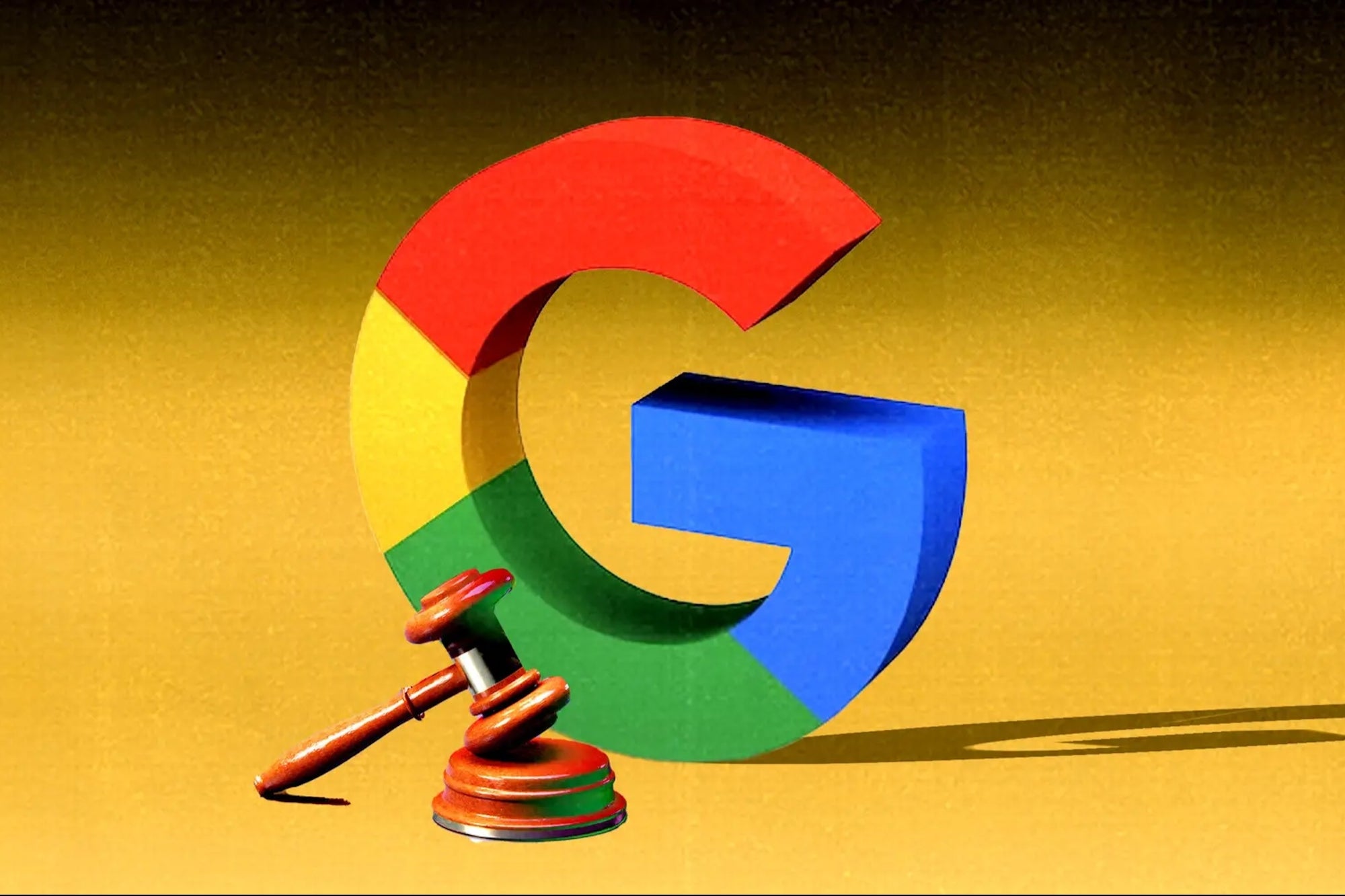U.S. Government Seeks To Break Up Google's Online Advertising Dominance

Table of Contents
Google's Market Power and Anti-Competitive Practices
Google’s market dominance extends across multiple online advertising platforms, fueling concerns about anti-competitive behavior.
Market Share Analysis
Google's grip on the online advertising market is undeniable. Reports from eMarketer and Statista consistently place Google's share of the U.S. digital ad market well above 50%, significantly exceeding its closest competitors. This dominance encompasses various platforms:
- Search Ads: Google Search remains the primary gateway to online information, making its search advertising a lucrative and powerful tool. This dominance translates into a massive share of search advertising revenue.
- YouTube Ads: As the world's leading video-sharing platform, YouTube offers a vast audience for advertisers, further solidifying Google's control over a substantial portion of the video advertising market.
- Display Ads: Google's Display Network reaches billions of users across countless websites and apps, extending its advertising reach beyond its own properties.
Allegations of Anti-Competitive Behavior
The Department of Justice (DOJ) alleges that Google has engaged in various anti-competitive practices to maintain its market dominance. These include:
-
Self-Preferencing: Google allegedly prioritizes its own products and services (like Google Shopping and Google Flights) in its search results and advertising platforms, giving them an unfair advantage over competitors. For example, Google Shopping listings often appear prominently at the top of search results, even when other competitors offer potentially better deals.
-
Exclusive Deals: The DOJ claims Google has entered into exclusive deals with advertisers and publishers, preventing them from working with competing platforms. These deals limit the ability of smaller advertising platforms to compete effectively. Evidence presented in court may include contracts and internal communications demonstrating these exclusive arrangements.
-
Data Monopolies: Google's vast data collection across its various services provides it with unparalleled insights into user behavior, enabling highly targeted advertising. This data advantage is difficult for competitors to match, creating an insurmountable barrier to entry for newcomers. The scale of Google's data collection, and its use in refining its ad targeting, is central to the government's case.
The Department of Justice's Case and Legal Strategy
The DOJ's antitrust lawsuit against Google represents a significant legal challenge to the tech giant's dominance.
The Antitrust Lawsuit
The DOJ's case rests on violations of the Sherman Antitrust Act, specifically Section 2, which prohibits monopolization and attempts to monopolize. The lawsuit argues that Google's actions have harmed competition, stifled innovation, and ultimately hurt consumers.
Potential Outcomes
The potential outcomes of the lawsuit are varied and significant:
- Structural Separation: The court could order a structural separation of Google's advertising businesses, potentially forcing the company to divest itself of certain assets or platforms.
- Fines: Google could face substantial financial penalties for its alleged anti-competitive behavior.
- Behavioral Remedies: The court might impose behavioral remedies, requiring Google to change its business practices to promote fairer competition.
Public Opinion and Expert Analysis
Public opinion on the Google antitrust case is divided. While some believe Google’s dominance harms competition and consumers, others argue that Google’s services benefit users and that the company’s success is a result of innovation and consumer preference. Legal experts and economists offer diverse opinions on the likelihood of success and the potential impact of the lawsuit, reflecting the complex nature of the case.
Implications for the Online Advertising Ecosystem
The outcome of the DOJ's lawsuit will have profound implications for the entire online advertising ecosystem.
Impact on Advertisers
The case could significantly impact advertisers by:
- Increased Competition: Reduced Google dominance could lead to increased competition, potentially offering advertisers more choices and potentially lower costs.
- New Advertising Platforms: A more competitive landscape might foster the growth of new advertising platforms and technologies.
Impact on Publishers
Publishers who rely heavily on Google's advertising platforms for revenue could experience:
- Revenue Diversification: They may need to diversify their revenue streams beyond Google Ads, potentially exploring alternative advertising platforms.
- Negotiating Power: A less dominant Google might increase the bargaining power of publishers in negotiating advertising deals.
Impact on Consumers
The potential effects on consumers are multifaceted:
-
Search Results: Changes in search results might affect the information consumers see and access, potentially impacting their choice of products and services.
-
Advertising Relevance: The case could lead to changes in advertising relevance and targeting, potentially resulting in more or less relevant ads.
-
Online Privacy: Any changes in data collection practices could impact online privacy, potentially leading to greater or lesser protection of user data.
-
Potential Positive Effects for Consumers: Increased competition could lead to lower advertising costs for businesses, which might translate into lower prices for consumers. More diverse search results could lead to exposure to a wider range of products and services.
-
Potential Negative Effects for Consumers: Changes to Google's algorithms could impact the quality and relevance of search results.
Conclusion: The Future of Online Advertising and Google's Dominance
The U.S. government's antitrust case against Google’s online advertising dominance represents a pivotal moment for the digital advertising industry. The allegations of anti-competitive practices, the legal strategy employed by the DOJ, and the potential outcomes all have far-reaching implications for advertisers, publishers, and consumers. The case highlights the ongoing debate surrounding the balance between innovation, market power, and fair competition in the digital age. The outcome will significantly shape the future landscape of online advertising and Google’s role within it. Stay tuned for further updates on the U.S. government's efforts to curb Google's online advertising dominance and its impact on the future of digital advertising. You can find more information on the Department of Justice website and through reputable news sources covering antitrust law and technology.

Featured Posts
-
 Ddg Diss Track Dont Take My Son Targets Halle Bailey
May 06, 2025
Ddg Diss Track Dont Take My Son Targets Halle Bailey
May 06, 2025 -
 Reaction To Ddgs Dont Take My Son Diss Track Aimed At Halle Bailey
May 06, 2025
Reaction To Ddgs Dont Take My Son Diss Track Aimed At Halle Bailey
May 06, 2025 -
 Assessing The Risks Investigating Pollution In Abandoned Gold Mines
May 06, 2025
Assessing The Risks Investigating Pollution In Abandoned Gold Mines
May 06, 2025 -
 Boston Celtics Eastern Conference Semifinals Schedule And Predictions
May 06, 2025
Boston Celtics Eastern Conference Semifinals Schedule And Predictions
May 06, 2025 -
 Controversy Erupts Ddgs Dont Take My Son Diss Track Directed At Halle Bailey
May 06, 2025
Controversy Erupts Ddgs Dont Take My Son Diss Track Directed At Halle Bailey
May 06, 2025
Latest Posts
-
 Black Female Athletes Redefining Style On And Off The Field
May 06, 2025
Black Female Athletes Redefining Style On And Off The Field
May 06, 2025 -
 Sabrina Carpenters Unexpected Snl Collaboration A Fun Size Connection
May 06, 2025
Sabrina Carpenters Unexpected Snl Collaboration A Fun Size Connection
May 06, 2025 -
 Sabrina Carpenters Fun Size Friend Joins Her For Snl Performance
May 06, 2025
Sabrina Carpenters Fun Size Friend Joins Her For Snl Performance
May 06, 2025 -
 Sunny 102 3 Fm Sabrina Carpenters Unexpected Snl Guest
May 06, 2025
Sunny 102 3 Fm Sabrina Carpenters Unexpected Snl Guest
May 06, 2025 -
 Sabrina Carpenters Snl Appearance A Fun Size Flashback
May 06, 2025
Sabrina Carpenters Snl Appearance A Fun Size Flashback
May 06, 2025
